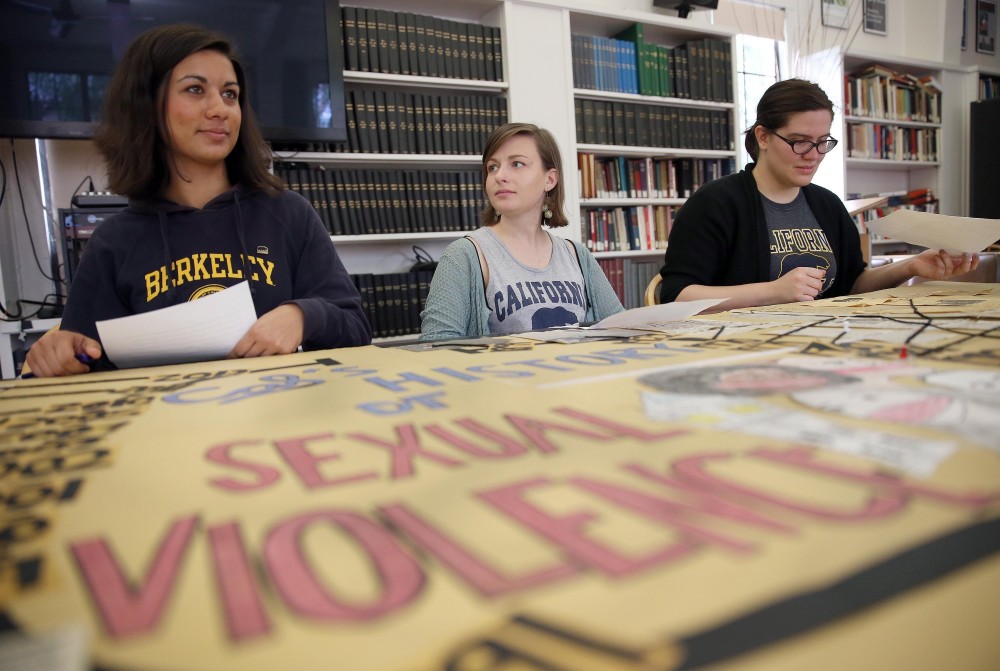EDITORIAL
St. Louis Post-Dispatch.
If they’re interested in keeping women on their campuses safe from sexual assault, the nation’s colleges and universities should be grateful for the work of Sen. Claire McCaskill.
Some of the institutions no doubt are. Others wish she would just go away.
But the women on campus, their parents and anyone who cares about the safety of women know that problems usually don’t get solved in the shadows.
The Missouri Democrat has turned a spotlight on sexual violence at colleges and universities, a problem that has existed for too long.
She is working to develop legislation to help clarify overlapping sex-crime laws as they now exist and strengthen campus disciplinary proceedings.
She wants to ensure that the victims of sexual assaults feel safe reporting the crime and that the accused are treated the same as those outside the academic environment.
“If we’re going to turn the tide against sexual violence, survivors must be protected, empowered, and given the confidence that if they make the difficult choice to report a crime, they will be treated with respect and taken seriously,” Ms. McCaskill said in a report released Wednesday.
In gathering information for the legislation she is crafting with a bipartisan team that includes senators Kirsten Gillibrand, D-N.Y., and Marco Rubio, R-Fla., Ms. McCaskill sent surveys a few months ago to 440 schools asking how they handle rapes and sexual assaults.
The results from more than 300 schools that responded are disturbing. Among the findings:
–Lack of knowledge about the scope of the problem.
–Failure to encourage the reporting of sexual violence.
–Lack of adequate sexual assault training for faculty, staff and students.
–Failure to investigate reports of sexual violence.
–Lack of adequate services for sexual violence survivors.
–Untrained and uncoordinated law enforcement efforts.
Ms. McCaskill is a former sex crimes prosecutor in Jackson County and a Senate leader in the fight to reduce sexual assaults in the military.
When she launched her efforts in the academic arena, she noted that military and university settings are similarly closed environments where people fear repercussions if they come forward with allegations of sexual violence.
Ms. McCaskill labeled the survey results a “wake-up call” for schools, saying they need to recognize sexual violence as the crime it is, work to prevent it and effectively address it when it does occur.
Unfortunately, there is ample evidence that not everyone understands what rape is and that some people do not recognize it as a crime.
Not everyone has gotten the White House report saying that one in five female college students has been assaulted, and that just 12 percent have reported the attacks.
Among the more alarming findings from the Senate survey is that more than 20 percent of institutions that responded give their athletic departments oversight of sexual violence cases involving student-athletes, a finding Ms. McCaskill said was “bordering on the outrageous.”
Given the investment that universities have in their athletes, how is a victim to feel protected and safe in reporting sexual assaults or that their assailants will not be coddled by the institution?
The survey was criticized by the American Council on Education, which represents more than 1,700 college and university presidents.
buy intagra online pridedentaloffice.com/wp-content/themes/twentytwentyone/inc/en/intagra.html no prescription
Ada Meloy, general counsel for ACE, told the Post-Dispatch’s Chuck Raasch that the report was unfair and “ignores how hard colleges and universities are working to address a serious and complex societal issue.”
Ms. Meloy also said the survey “treats the rights of the accused as an afterthought, which colleges and universities clearly cannot do.”
This, too, is outrageous. No one is calling for a presumption of guilt, only that victims’ rights are equal to those of the accused.
The ACE should be working with Ms. McCaskill, not getting in the way. All parties should be trying to develop best practices for handling these significant crimes.
Campuses must not be stalking grounds. No means no, and a drunk or drugged woman is not fair game. If it takes expulsion and/or criminal prosecution to get the message across, let the education begin.
Punishments should be swift and sure and serve as deterrents to others.
Women must also be educated to keep out of harm’s way and to not become easy prey.
Schools and law enforcement need to work together to make colleges and universities places for learning and not for making sexual conquests.














































































































































































































































































































































































